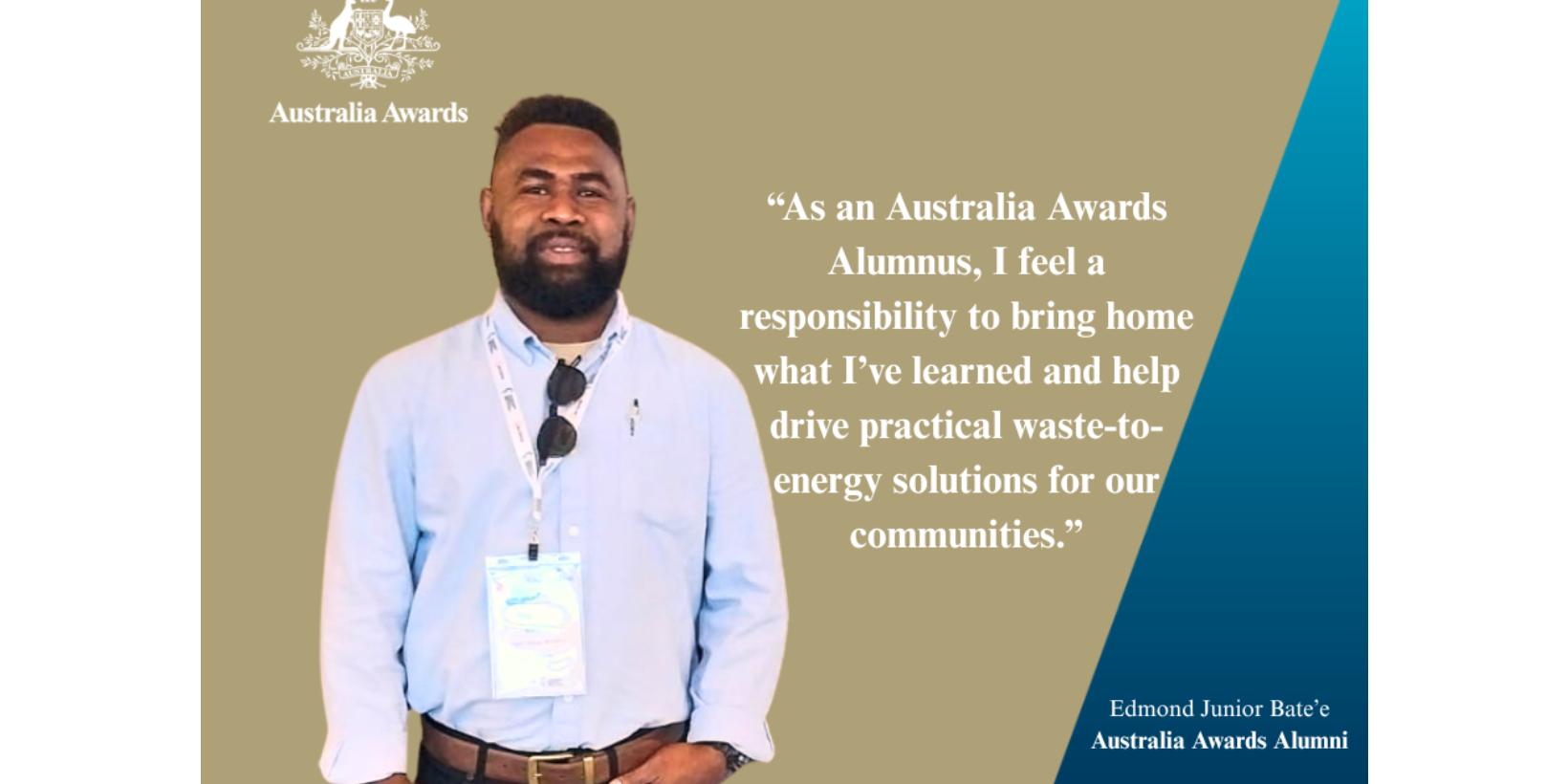Australia Awards Solomon Islands Alumnus, Edmond Junior Bate’e, has returned home from the 2025 Waste to Energy Conference on the Gold Coast with fresh ideas to tackle the country’s growing waste challenges.
Supported by the Australian Government through Australia Awards Solomon Islands and by his employer Tropic Group Builders Ltd (TGB), Mr Bate’e joined leading experts at the conference hosted by the Waste Management and Resource Recovery Association of Australia (WMRR).
“This experience opened my eyes to the fact that waste is not just a problem — it’s a resource when managed properly,” Mr Bate’e said. “As an Australia Awards Alumnus, I feel a responsibility to bring home what I’ve learned and help drive practical waste-to-energy solutions for our communities.”
The conference focused on practical ways to transform waste into clean energy using technologies like pyrolysis, gasification and biological conversion — ideas Edmond believes could benefit the Solomon Islands, where more than 70% of waste is organic.
Australia’s High Commissioner to Solomon Islands, His Excellency Rod Hilton, congratulated Edmond on his commitment.
“Edmond is a great example of the impact our Australia Awards Alumni can have. They return with knowledge, networks and ideas that create local solutions to the development challenges we are facing.”
In Honiara alone, residents generate an estimated 80–100 tonnes of waste every day, according to a report from Honiara City Council.
Most of this waste ends up in open dumpsites like Ranadi Landfill, which is already nearing capacity. Open dumping and burning contribute to pollution, health risks and greenhouse gas emissions.
Plastic waste makes up around 10–15% of urban household waste, and is a growing concern in landfills, waterways, and especially the ocean, where it threatens coral reefs, fisheries, tourism and food security.
The Solomon Islands National Waste Management and Pollution Control Strategy 2017–2026 identifies urgent issues in the sector, including limited collection systems, poor waste disposal practices, and a lack of technical skills.
The strategy calls for improved waste minimisation, stronger policy enforcement and more public-private partnerships to deliver sustainable solutions.
The strategy highlights the need for improved waste minimisation, stronger policy enforcement, and more public-private partnerships to deliver sustainable solutions.
Edmond said there is an urgent need for stronger partnerships and local expertise.
“We have the policies, like our national strategy, but we need to build local skills and strengthen how we manage waste. Pilot projects using waste-to-energy solutions can show our people how waste can generate clean power and jobs.”
He also plans to advocate for an independent waste management body, modelled on WMRR, to bring together government, businesses and communities to set standards and share knowledge.
Australia Awards Alumni continue to play a vital role in helping the Solomon Islands meet its development goals for resilient infrastructure, sustainable communities and environmental protection.









